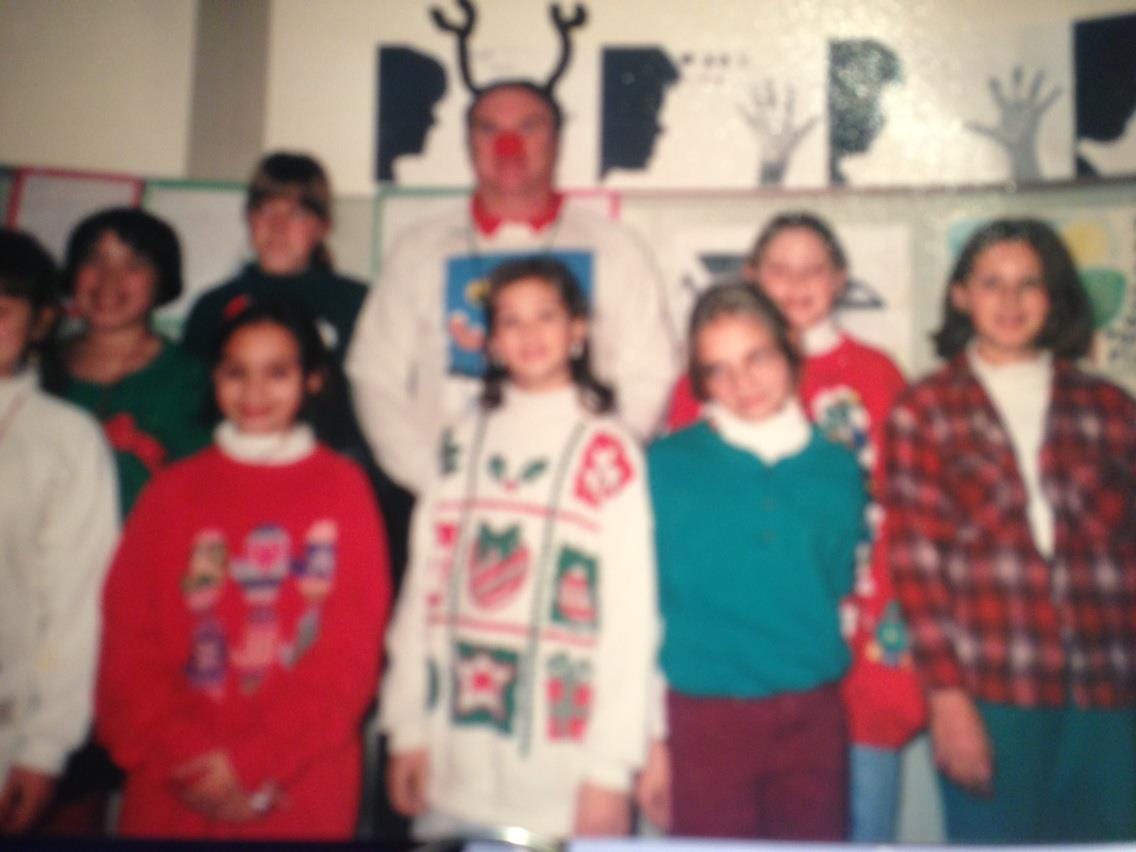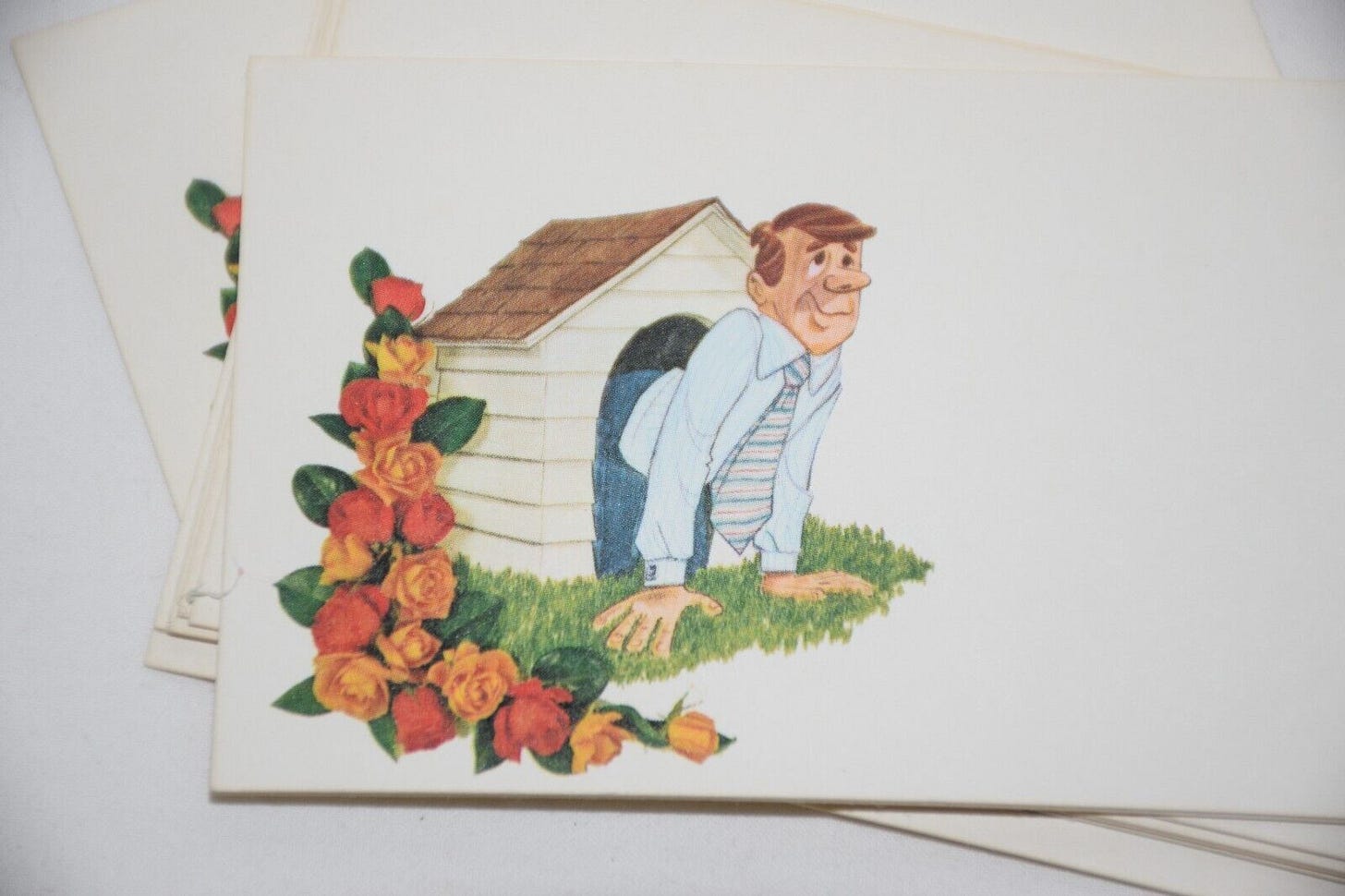
My 5th grade teacher, Mr. Heverly, was fascinated with rhinoceroses and would marathon Beatles movies with us–a group of 10-year-olds, who just wanted to watch The Lion King on carpet squares and have someone play with our hair. In high school, I’d pack my fluffernutter sandwich in a Yellow Submarine tin lunchbox and think back to 1994–the year I talked in a childish version of my own voice for reasons my therapist could never explain to me.
The first time I heard the word “lesbian” was when it was flung at me at recess. The most coveted boy in our 5th grade class called me this unfamiliar word. My face burned like it did when our teacher asked us to take turns reading text aloud. I never had a clever retort, instead I’d try to make people laugh their way into loving me.
So, I did what any typical grade schooler would do and asked this boy if he wanted to see me impersonate my dog’s butt during a bowel movement. (For context, Ace Ventura: Pet Detective had just come out and I was trying to emulate my inner Jim Carrey all the time. Including in an Applebee’s bathroom when I was trying to get a laugh from my mom by making my butt cheeks talk—while clothed, of course—and got rudely interrupted by another diner who dared to enter the restroom.) Anyway, the boy who everyone had a crush on waited in anticipation while I puffed up my cheeks and pulsed them like a blowfish. And then, I slowly slipped my tongue out to resemble defecation. It was like a scene out of Pen15 that my brain has not let me forget. If I could Eternal Sunshine of the Spotless Mind that shit out of my head, I think I would.

Our Shih Tzu, Brandy, was being housetrained, sandwiched between two baby gates in our entrance hallway. The floor was always slippery and coated in layers of Pledge floor cleaner–something my dad would do to stay busy after a marital dispute. On floor waxing days, our house would smell of artificial lemons and a florist card could be found on the kitchen counter–with a cartoon person in a dress shirt and tie coyishly popping out from inside a doghouse. This apology note would be accompanied by a wealth of flowers–a tradition my father expected my future courters to continue.
My dad arrived home from work and stepped over the first baby gate to find me slumped on a pee pad next to Brandy–a dog he named after an alcoholic beverage, like every dog before and after. I blurted out a question my mom wouldn’t answer–What’s a lesbian? He said it meant “a gay woman.” No additional context.
The next day at school, I was armed with the perfect comeback. Mr. Heverly reprimanded both of us in the hallway after I called my handsome nemesis gay.
Moving forward, I was often on the receiving end of words that only got more violent, more dangerous. For as harmful as they were, they were also perhaps a bit intuitive—cruelly nudging me with certain labels that I would come to accept, and eventually celebrate, decades later after coming out as queer and trans.
This memory is just one of the many reasons I feel called to educate people of all ages around queer advocacy. Doing this work means ensuring that a child’s earliest exposure to LGBTQIA+ language isn’t as a slur used against them on the playground.




